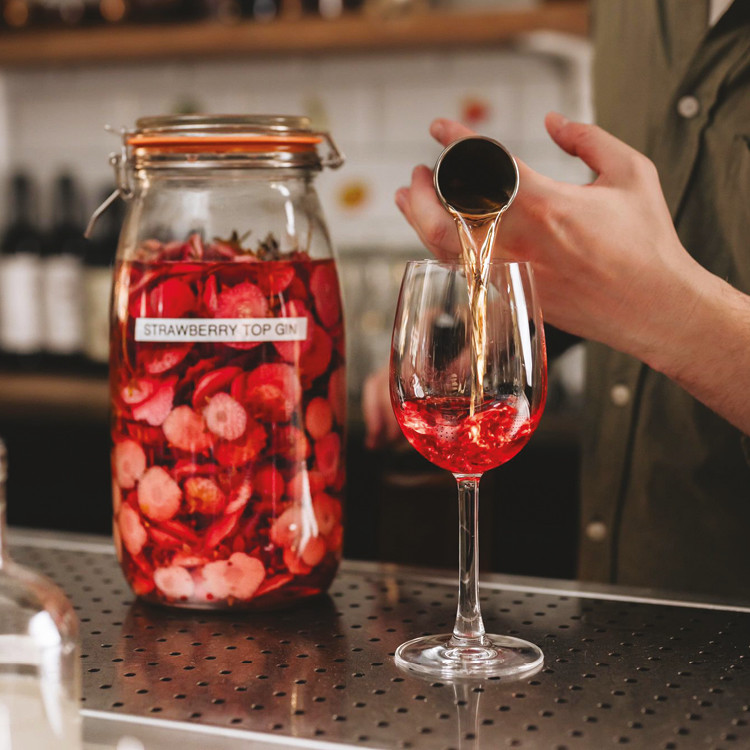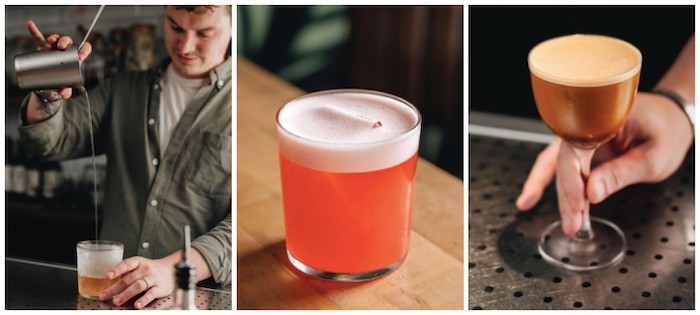
If you’re serious about localism, how about going that step further to a local spirits selection? Lewis Parry is doing just that.
Is it possible to use entirely local brands in a bar and still make money? That was the first question I asked myself when I was coming up with the concept for Pal. I wanted to focus on what as a country, we produce. I wanted to showcase our amazing distillers and I wanted to do it in a neighbourhood bar setting.
An all-English (or British) offering isn’t an easy sell. Our customers – in my part of the world anyway – don’t traditionally go to a bar to be challenged. They have their favourite brands and seeing them brings feelings of familiarity, trust and comfort. These brands, coming as they do all-singing and dancing with incentives, help to drive down the cost too. There’s a reason why so many bars and restaurants profess to being local and sustainable but stop short of international wines and spirits – the product they sell most.
I get it – international brands are a winning formula, but as a model, it doesn’t excite me. Offering the same products as the next bar isn’t an experience. Not a unique one anyway. So is there a compromise to be found? Could we still stock tequila and rum, but then go local for everything else?
With new distilleries opening in England every month and whiskies in barrel now coming to maturity, there’s an opportunity that there hasn’t been before for a bar to go (almost) fully local. My driver is, of course, to reduce the carbon footprint of our bar but also to put more back into the UK economy, and support local communities. It’s so much more exciting to be able to talk about the British aperitivo, vodka, gin, brandy and whisky you’re using when you know the producers or you’ve been to the distillery. It’s about bringing together the bar and these producers.
So that’s what we have done at Pal – and it’s working. The approach is not only what drives me but my amazing team. Creativity is often at its best through restriction and replicating classic cocktails through the lens of British produce certainly gets us thinking.
So just how do you make a drink like a Sazerac without American whiskey or brandy? Well, with quite a few trials – and a few errors – we fell upon Filey Bay’s Flagship single malt from Yorkshire, which we aged for eight weeks in a barrel previously used to age a rum cocktail at our sister venue, then spiced up a demerara syrup with nutmeg. We then add citra dry hopped Creole bitters. Stir all this and pour into a glass rinsed with Tarquin’s Cornish Pastis rather than absinthe and you have yourself a British Sazerac.
Spice and funk
Our take on an Old Fashioned – called Antique – sees brown butter-washed English whisky, Lincolnshire honey and bitters. The butter wash brings out the same viscosity and sweetness we see in the likes of bourbon, and the local honey adds spice and funk. We stock eight English whiskies – it’s such a strong category already, we don’t feel the need to stock scotch, American or any others.

Not all of our cocktails are so involved. For some drinks like the Dog In The Jungle, our take on a Jungle Bird, it’s a case of swapping Campari for Doghouse’s Doppelgänger, pineapple for apple and rum for a funky Edwards potato vodka, made 30 minutes away.
And we have other signatures that are all-English. The most popular is Daddy, a drink made with pure strawberry juice, Edwards Rhubarb vodka, Lincolnshire honey, Supasawa and ex-sparkling wine liqueur (flat sparkling sweetened and acid regulated). The Misc Spritz has strawberry top gin, made from waste strawberry tops from the Daddy, Marshmallow Moonshine, English aperitivo, English sparkling wine and soda. Both drinks are served when we have quality British strawberries – during autumn and winter we swap to fresh blackberries then to pear and finally to rhubarb until the blessed British strawberry is back in late spring.
For drinks such as Spritzes we simply switch out champagnes and prosecco for English sparkling, and instead of using Sauvignon Blanc we have English Bacchus made down the road.
Among the other interesting products we stock are an amaretto made from waste peach, plum and cherry stones, Cornish cider brandies, local fruit eau de vie, Nc’nean’s Botanical Spirit (sort of like genever) and a full range of English vermouth, from Asterley Bros to Sacred.
We love to serve the best of British but it’s important to say we’re not absolutist – if there are products we need that aren’t made in the UK, then we buy them, but I’m always on the lookout for new British alternatives. I’m eagerly awaiting the trial of rums produced from international molasses but distilled in England. Agave spirits will be harder, but you never know what might be possible in the future.
It’s early days, but so far the approach is working. It does take a bit of explaining for the guests but that, for me, is an opportunity to engage and build a relationship. And I’m pretty sure this approach yields better revenues than I’d get selling fewer drinks that have retros. A few percent back on a bottle will never equate to the sale of an extra drink because the customer is inspired or excited.
And there’s one more thing: Pal isn’t a bar in a cool city or a hipster neighbourhood. It’s in Grimsby. If we can do it, so can you.


